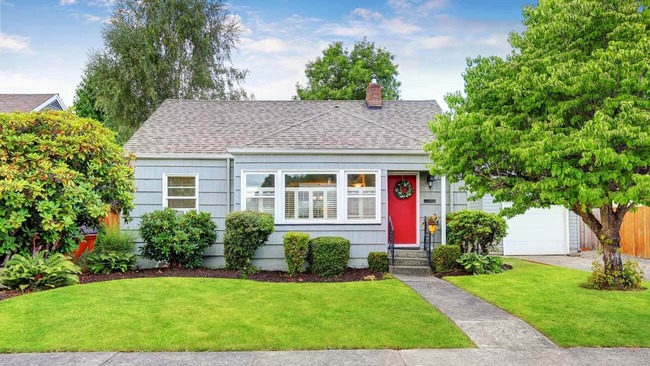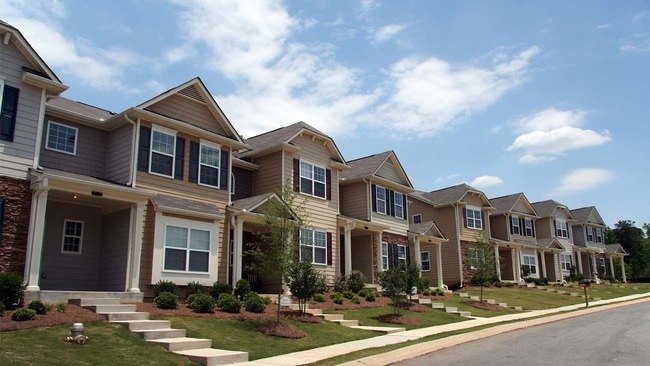What is an HOA? The Housing History and Cause for Covenants

When shopping for your new home, you have a budget in mind. You may even have a neighborhood in mind. If you choose a home located in a common interest development, you’ll need to be sure you take homeowners association (HOA) dues into consideration.
But first things first, even before you buy a property, it’s essential you understand HOAs and covenants.
What is an HOA?
An HOA is a legal entity or governing body charged with managing the property of a particular subdivision, condominium or planned unit development. They write and enforce rules to enrich your neighborhood. Since 1964, HOAs have become increasingly common in the United States. The most popular forms of US housing, today, are common-interest developments, a category that includes planned unit developments of single-family homes, condominiums, and cooperative apartments.
What is a covenant?
HOA rules are called covenants, conditions, and restrictions (CC&Rs). Covenants or CC&Rs usually apply to the homeowner and the home. According to lawyers.com, they may cover what color you can paint your house, what you can plant in your yard, how high your fence is, and whether you can rent the property to someone else. There are usually noise restrictions, as well.
If you’ve fallen in love with a property in a covenant controlled community, it’s in your best interest to request copies of governing documents (bylaws, rules and regulations, meeting minutes, etc.) before making an offer.
Advantages of HOA housing
A key benefit of an HOA is living in a well-maintained community. This, in turn, keeps property values from declining. It also prevents you from living next to a house that’s painted millennial pink or living next to a home with obnoxious, party animal renters.
A second benefit is having access to amenities like a pool, gym, playground, and more. It’s a more private setting and is more convenient than having to commute to a nearby (and likely full) city park or pool.
Not a fan of confrontation? Mediation is the third benefit that can come in handy if you’re not making progress with a noisy neighbor. Sometimes, the HOA will even handle the situation itself.
Disadvantages of HOA housing
Property appearance requirements, such as specific outdoor house colors or needing to have a fence may seem like unnecessary rules. After all, who likes being told what they can and cannot do? Unfortunately, rules are rules. So, if you’re that person who wants to paint her home millennial pink, you may want to buy in another neighborhood, one that’s not governed by an HOA.
For homeowners who choose to challenge the HOA rules, you can expect penalties. HOA’s can issue fines if your lawn gets too dry, if your dog is the wrong breed (or size), or if your property is not maintained to HOA standards.
Let’s not forget monthly dues or fees. These can vary from $100 a month to $1,000 a month (sometimes more, sometimes less) depending on where you reside. They’re an expense that adds up quickly, but they pay for amenities and services that homeowners enjoy. So the benefits should outweigh the cost.
How much are HOA fees?
The amount you pay varies based on the type of home, home size, your neighborhood, state laws, etc. Typically, the more upscale the housing community and the more amenities it has, the higher the HOA fees are likely to be. You can find the HOA for a particular property in the listing information, and (as mentioned above) you can expect them to range from anywhere between $100 and $1,000 a month.
Tip: ask to see the HOA's history of rate increases. This can help you better understand how often they raise their fees and by how much.
What do HOA housing fees cover?
Fees vary, so if you’re looking to move to a community that’s governed by an HOA, be sure to ask about their fee structure and services. Generally speaking, HOA fees cover:
-
Common area maintenance — depending on property type and location, this may include pools, playgrounds, elevators, shared walls/roofing/fencing, etc.
-
Infrastructure development
-
Snow removal
-
Trash removal, recycling, and sewage are often covered
-
Water and cable can be covered
The HOA board can also decide to impose special assessments that are beyond what the monthly dues cover. The assessments tend to deal with a needed improvement or emergency repair that's not covered by insurance.
What happens if you do not pay HOA fees?
If you’re so adamantly against HOA fees, you could choose not to pay them. But that would be ridiculous. Like your cell phone, cable, and energy bills, there are consequences if you do not pay your HOA fees on time, or at all.
Repercussions vary by state. For starters, you can expect to receive a letter from your HOA board reminding you of your outstanding debt. You’ll also likely see some late fees on your next statement. Should you choose to continue ignoring the bill, your rights as a homeowner can be suspended within the community (losing access to the pool or gym). The longer you take to pay the bill, the worse the situation gets. Yes, you can (and will) be sent to collections if you choose not to pay HOA bills. The association may even decide to file a lien on your property, which can eventually lead to foreclosure (worst case scenario).
Can you opt out of an HOA?
You cannot. Membership is mandatory. That’s why it’s important to read the rules and regulations before buying a property that is governed by an HOA.
Homeowners Associations intend to make common interest developments great places to live. They bring a lot of value, protection, and resources to your neighborhood. Still, understanding what an HOA is and whether it’s the right fit for you is a crucial step in the home buying journey — because, you’re not just buying a home, you’re buying into your community. Make sure it’s the right fit for you.




